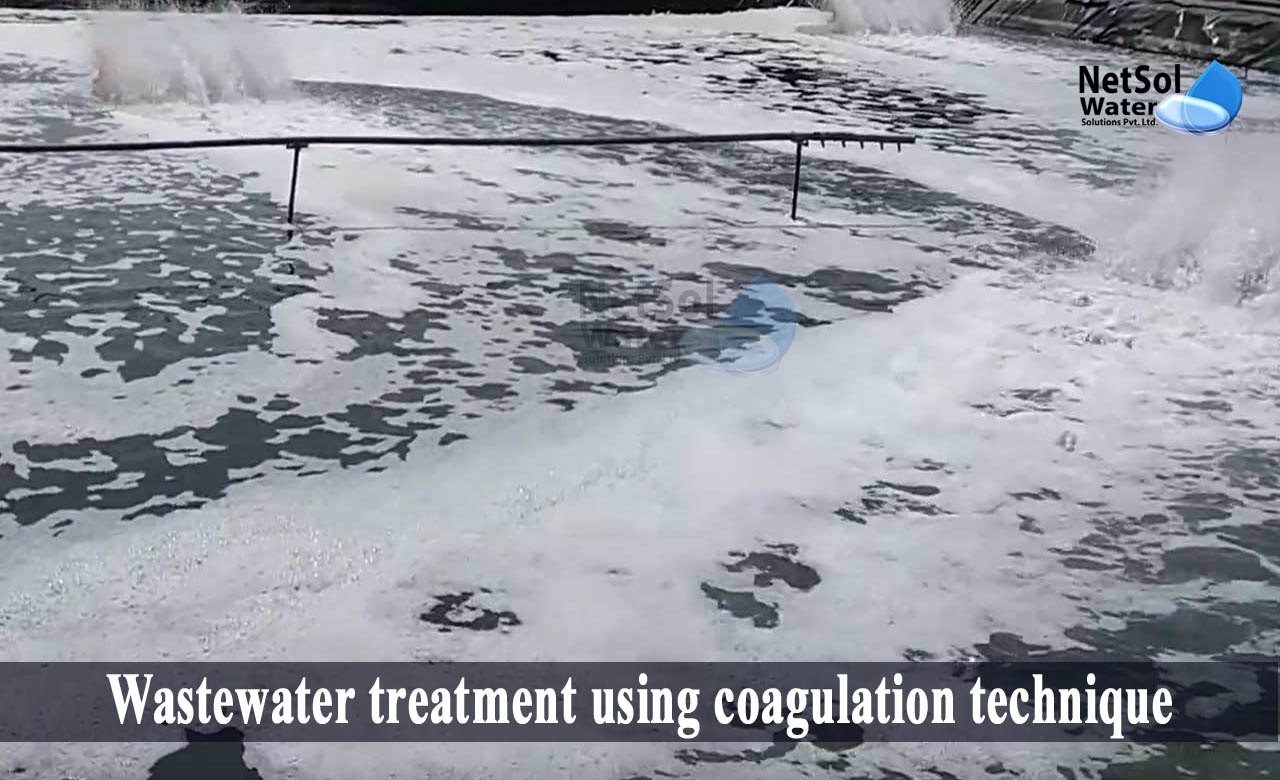How to Wastewater treatment using coagulation technique?
Coagulation is a chemical water treatment process that involves manipulating the electrostatic charges, of particles suspended in water to remove solids.
Small, highly charged molecules are introduced into water to destabilize the charges on particles, colloids, or oily materials in suspension. Choosing the right coagulant for a system improves overall system performance and, in particular, solids removal efficiency by improving filter and clarifier performance.
Coagulation reactors are required in many wastewater treatment applications, such as trying to remove colloidal solids from water and demulsifying oil emulsions. Coagulants of various types are also available to meet the specific needs of a treatment process. In most chemical water treatment processes, coagulation comes before flocculation.
Process of Coagulation
The coagulation process involves the addition of iron or aluminium salts to the water, such as aluminium sulfate, ferric sulfate, ferric chloride, or polymers. These chemicals, known as coagulants, have a positive charge.
The coagulant's positive charge neutralizes the negative charge of dissolved and suspended particles in water. The particles bind together, or coagulate; when this reaction occurs (this process is sometimes also called flocculation).
The larger particles, or floc, are heavier and sink to the bottom of the water supply quickly. Sedimentation refers to the process of settling.
General characteristics of coagulants
Polymers have two properties that make them suitable for use as coagulants. These include:
(1) Having a very high charge density to neutralize the negative charges, on the colloidal material's surface, and
(2) They have a low molecular weight (MW), which allows for good cationic charge diffusion around the particles.
What is taken out during coagulation? What is added?
Coagulation can effectively remove a large number of organic compounds, including some dissolved organic material known as Natural Organic Matter (NOM) or Dissolved Organic Carbon (DOC).
Coagulation can also remove suspended particles such as iron and inorganic precipitates.
Is coagulation a necessary step in wastewater treatment?
It is a critical step in the wastewater treatment process because coagulation removes many of the particles, which make water difficult to disinfect, such as dissolved organic carbon Because, coagulation removes some of the dissolved substances, the amount of chlorine required to disinfect the water is reduced.
Various coagulants for wastewater treatment
For a more in-depth look, there are numerous coagulants available for wastewater treatment. The coagulants presented below are an introduction to the various formulations and charge densities.
· Metal-based coagulants are the most common type of products. These may contain only metal salts (such as aluminium sulfate or ferric chloride), or polymerized metal salts (like Polyaluminum chloride).
· On relatively large molecules, synthetic coagulants can have very high charge densities. Some synthetic derivatives may act as flocculants depending on the formulation.
· Natural sources are used to make biopolymer coagulants. Polysaccharides and other natural biopolymers derived from animals, fungi, and microbial processes are also used.
Many hybrids exist for these coagulant sources and formulations. Even more options are available by combining two or more coagulants. Netsol Water Solution's Treatments department specializes in combining the best properties of coagulants, to create hybrids that optimize a wide range of wastewater treatment processes.
Conclusion
Coagulation is a critical mechanism found in the majority of conventional water and wastewater treatment plants. This takes place in a physical purification unit, which involves transport processes as well as the addition of coagulants for chemical reactions, charge neutralization, and the formation of smaller flocs that agglomerate into larger flocs.
This improves the efficiency with which recalcitrant contaminants are removed by downstream processes. Coagulation is expected to improve the gravity system's capacity to eliminate suspended solids by about 90%, when compared to a system without coagulation.
How can we assist?
If you have any questions about wastewater treatments using coagulation, or if you would like to discuss your specific needs, please contact the Netsol Water team right away. Our team is an expert in providing solutions for water and wastewater treatment, and can help you tailor a solution to your specific requirements.
Netsol Water is Greater Noida-based leading water & wastewater treatment plant manufacturer. We are industry's most demanding company based on client review and work quality. We are known as best commercial RO plant manufacturers, industrial RO plant manufacturer, sewage treatment plant manufacturer, Water Softener Plant Manufacturers and effluent treatment plant manufacturers. Apart from this 24x7 customer support is our USP. Call on +91-9650608473, or write us at enquiry@netsolwater.com for any support, inquiry or product-purchase related query.



